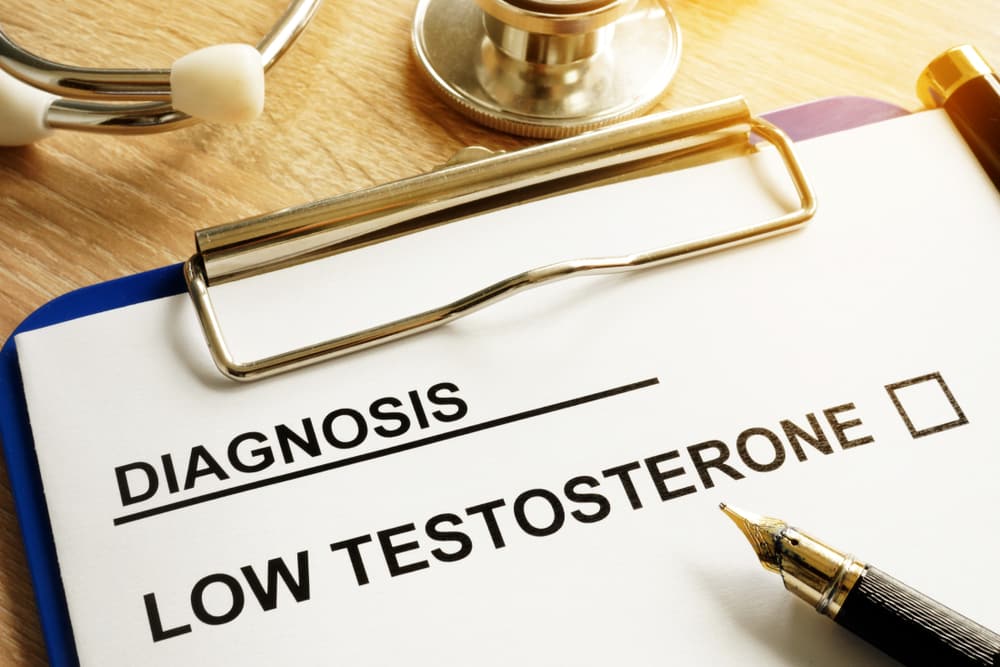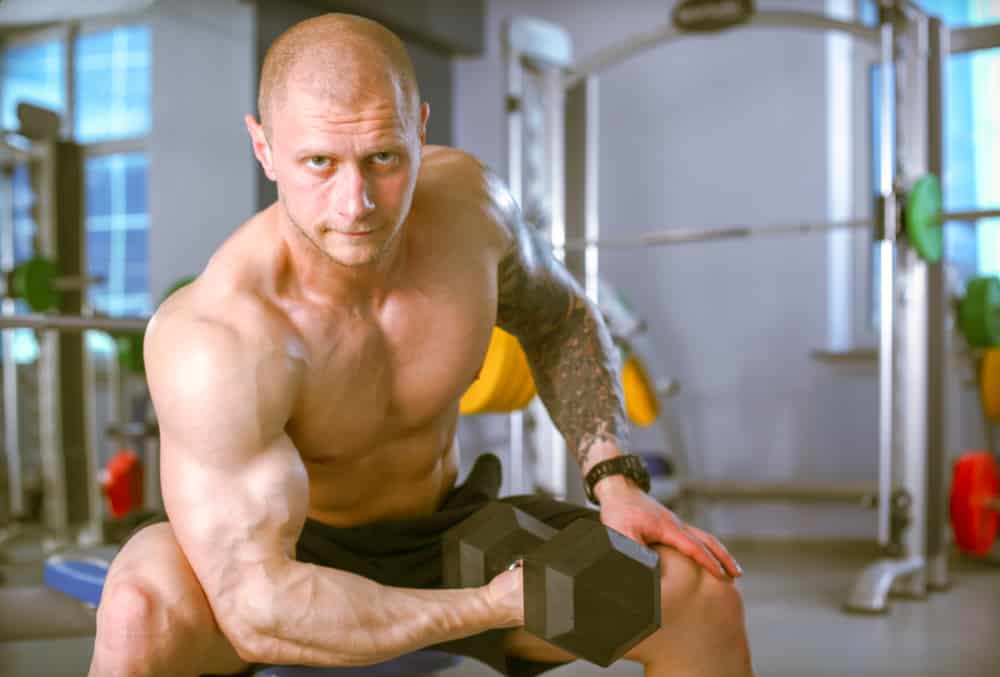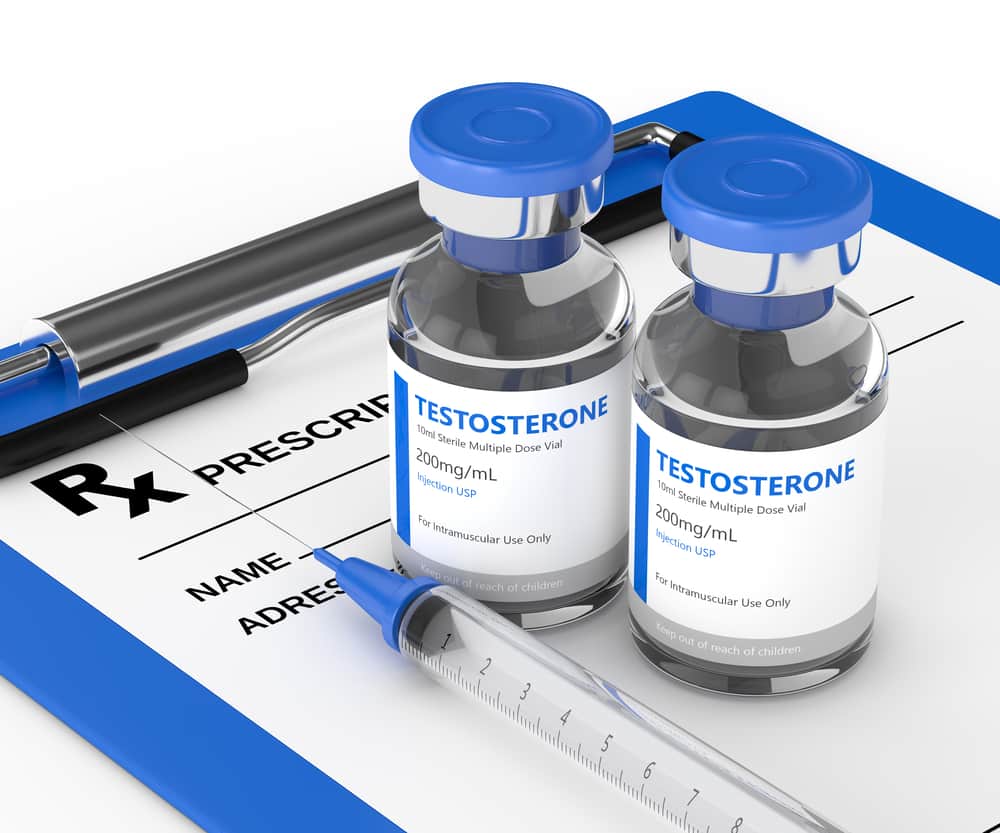
While hormone balancing and anti-aging therapy may seem far-fetched, bioidentical hormone replacement therapy is a real, modern technique that uses synthetically designed, hyper-similar hormones to help balance testosterone and other hormones as we age. The process of hormone balancing and using bioidentical hormones to regain a hormonal equilibrium requires expert guidance from a medical professional because as we will learn, our hormonal systems are very interconnected.
Pioneered in 1930 by a Canadian researcher named James Collip, hormone replacement therapy was initially a relief for women experiencing the symptoms of menopause. Collip discovered that menopause was related to a lack of hormones, and this led him to discover that certain hormone levels decrease steadily as we age. He hypothesized that chemically identical hormones could help the body regain lost functionality and return it to a more youthful state.
In its early days, hormone therapy came with some not-so-great side effects, but modern-day research has been able to reduce side effects and create a safer testosterone replacement therapy and hormone balancing. This is due, in part, to advances in our overall understanding of the mechanism of hormones and how delicate and intricate this interconnected system really is. Bioidentical hormones match the chemical structure of the body’s existing hormones, to eliminate the chance of the body classifying it as an intruder, and limits disruption of natural processes.
As we age, our body loses the ability to produce the necessary number of hormones. Conditions such as pituitary disorders and thyroid disorders can also throw our body’s hormonal balance out of alignment. Certain hormones, such as testosterone, progesterone, and estrogen, naturally begin to become depleted from the body as we age. This results in many of our body’s processes becoming adversely affected. Both men and women can suffer from an imbalance of hormones either from natural declines or because of poor diet and or other health conditions that commonly develop with age.
Key hormones, including progesterone, cortisol, testosterone, estrogen, DHEA, estradiol, and estriol play roles in reproductive development as well as aging and overall wellness. When these hormones become depleted or imbalanced, the body loses its ability to:

Hormones need balancing because when we pull one lever, others move too!
Hormonal balancing involves the process of analyzing the body’s complete endocrine system. Then determining the best plan for rebalancing your (endocrine) hormone system. Many providers talk of simply adding testosterone or HGH. These types of limited approaches can lead to side effects and other complications without helping to balance the system as a whole.
It is no surprise, then, that even the slightest imbalance may have a noticeable effect on your overall health. Therefore, professional hormonal balancing providers are aware that every time you alter the function of a gland or the levels of a specific hormone, there will be a potential response with other hormones. This relates to only pulling one lever at a time. Experienced providers look at thyroid and pituitary gland, growth hormone, luteinizing hormone (LH) and follicle-stimulating hormone (FSH), and estradiol levels. All prior to starting a patient on testosterone or estradiol.
As with any bioidentical hormone replacement therapy or testosterone replacement therapy, you want to be sure you are working with a provider who truly takes a balanced and holistic approach to hormone therapy. A successful hormone therapy treatment is one that aims to bring hormonal levels to optimal ranges and stabilize them. All of these application methods can be successful. Which one works best for you, your lifestyle and body is up to the individual. It is very important to measure your individual response to therapy. Working with a provider who can adjust your therapy as needed, is critical for success.
There are multiple methods for testosterone replacement therapy, here we will discuss, pellets, injections and troches.
Pellets have been in use since the early 1960s and recently been used in the field of bioidentical hormone replacement therapy. The reason pellets are a favorite among providers due to their easy administration and slow dissolution, for bioidentical hormone replacement therapy.
Each pellet is about ½ inch in length and wide as the tip of a pen. Pellets require insertion into the upper hip area or love handles during a simple, procedure. The body then slowly begins to metabolize the pellets, releasing a steady, optimal dose of hormones—much like our normal function—over three to six months. The duration depends on how many pellets, strength, and how quickly your body metabolizes the pellet. This does vary from person to person.
The benefits of pellet therapy include:
Injection Therapy is a very common method used for TRT. This treatment is fast acting and can help improve testosterone levels within days. With injection therapy, it’s very important to ensure the proper balance and ratios of testosterone to estrogens due to the fact that they are very fast acting and do not last as long as pellets. Injections can cause hormone levels to bounce up and back down from week to week, which can be hard for patients and providers to manage.
Benefits of Injection Therapy:
With that being said, injections are not as easy to administer and monitor as pellets due to the fact that they can cause rapid jumps and declines in hormone levels from week to week. They also require repeated administrations which can be troublesome.

Troches, pronounces tro-key(s) are gummies that dissolve in your mouth and are dose daily or weekly. Not a fan of shots? This may be a good option for you. The benefit of troches is regular dosing and a steady state of testosterone. The downside is taking one every night and the absorption is about 25% of injectable medications.
Overall, pellets are superior to other modalities because of their duration of action and release mechanism. Creams and gels take weeks for their effects to be noticed by the patient due to poor absorption. Injectable hormones produce sharp “peaks and troughs” in drug concentration in the time between the patient’s injections. Peaks can be dangerous, as the drug concentration will be higher than what is right for the patient. Troughs will leave the patient feeling drained and feeling off in the days leading up to their next shot.
Both men and women can experience the effects of an imbalanced hormonal profile. For men, hypogonadism, or the natural decline in testosterone production, can cause them to feel less motivated, energetic, and youthful. Women can also experience some negative effects of low testosterone. This includes a decreased sex drive, decreased ability to produce new blood cells, and, mood swings. Imbalanced levels of FSH which can negatively affect reproductive health.
If you have experienced any symptoms mentioned above – fatigue, decreased sex drive, inability to focus, irritability. Hormone replacement therapy could be right for you. Bioidentical hormone replacement has many benefits because of testosterone’s key role in the body. Thanks to advances in bioidentical hormone therapy, you do not have to live with the symptoms of low testosterone. Bioidentical hormone therapy helps to combat these symptoms.
You may also have low levels of NAD+. NAD+ is also an essential component of the citric acid cycle (or Krebs cycle). This is the cellular process that produces energy for literally every cell and organ in the body. This process takes place in the mitochondria of cells (AKA the powerhouse of the cell). This means that NAD+ is useful almost everywhere in the body. For energy production, it reacts with O2 in mitochondria to produce ATP. Thus, it enables the transfer of energy from the foods we eat to vital cell functions. NAD is crucial to the aging process because the molecule is active in DNA repair, chemical stress, and inflammation. NAD+ therapy can help and many patients tackle bioidentical hormone replacement and NAD+ at the same time.
If you are interested in bioidentical hormone replacement therapy and or testosterone replacement therapy, reach out today and schedule a consultation where we will perform the proper testing to get started.